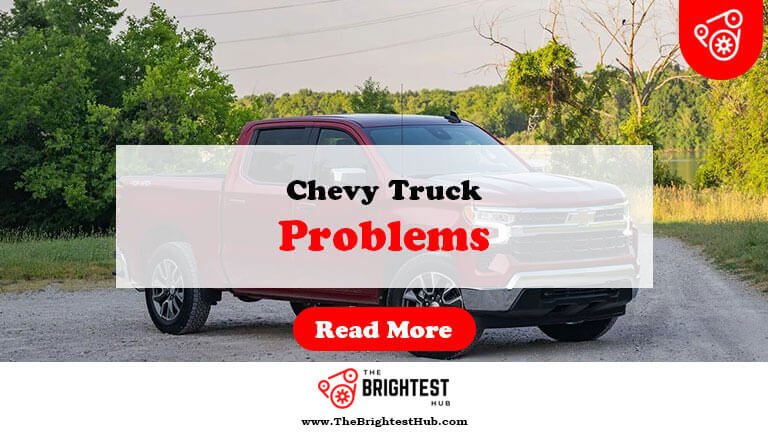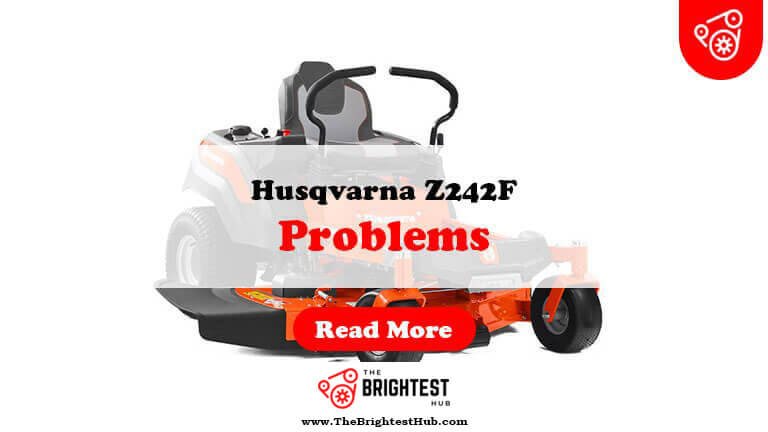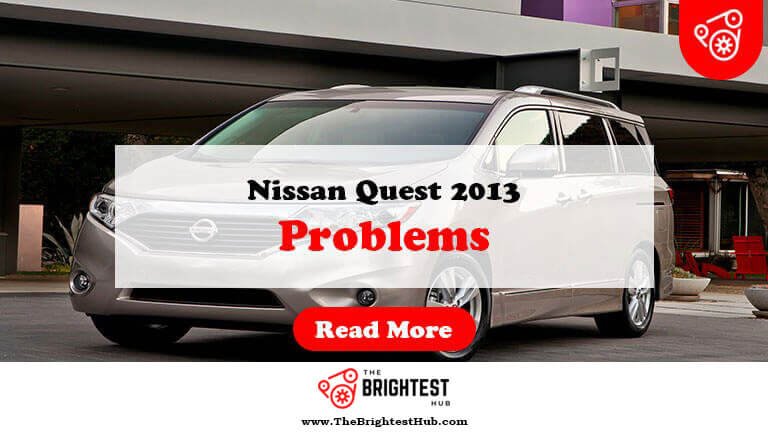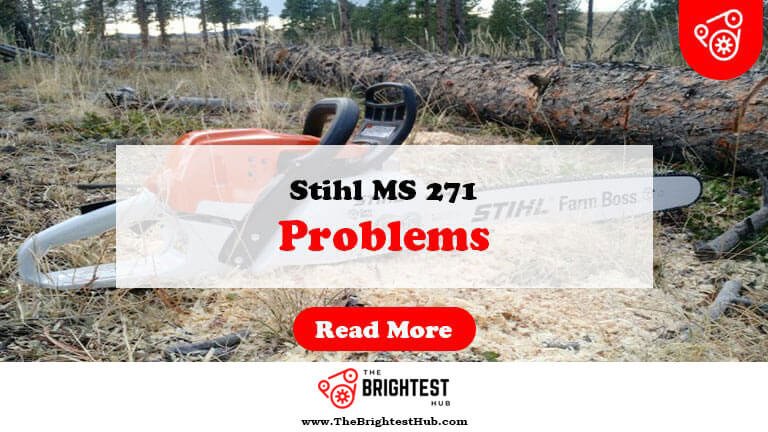Trailer Brake Problems: Quick Fixes for Safe Towing
Trailer brake problems can lead to serious safety issues. Common issues include brake fade, uneven wear, and inadequate response.
Proper trailer brakes are essential for safe towing. Drivers rely on them to halt heavy loads effectively. A malfunctioning brake system can cause accidents, putting everyone on the road at risk. Regular maintenance and inspections help identify potential issues early.
Signs of brake problems include unusual noises, pulling to one side, or a spongy brake pedal. Ignoring these symptoms can result in costly repairs and dangerous situations. Understanding how trailer brakes work is vital for every trailer owner. This knowledge can prevent accidents and ensure safe journeys. Keeping your trailer’s brakes in top condition should be a priority for every responsible driver.
Introduction To Trailer Brake Issues

Trailer brakes are vital for safe towing. They help slow down and stop the trailer effectively. Problems with trailer brakes can lead to accidents. Recognizing issues early can save lives. Let’s explore common symptoms and the importance of timely fixes.
Common Symptoms
Identifying trailer brake problems early is crucial. Here are some common symptoms:
- Unresponsive brakes: The brakes do not engage when needed.
- Uneven braking: One side of the trailer brakes harder than the other.
- Squeaking or grinding sounds: Unusual noises indicate wear and tear.
- Brake lights malfunction: Lights do not work properly when brakes are applied.
- Burning smell: This can signify overheating components.
Importance Of Timely Fixes
Fixing trailer brake issues promptly is essential. Delayed repairs can lead to serious accidents. Consider these reasons for timely fixes:
- Safety: Ensures safer towing experiences for you and others.
- Cost-effective: Early repairs often prevent expensive damage.
- Compliance: Meet legal requirements for trailer safety.
- Peace of mind: Travel confidently knowing your brakes work.
Don’t ignore signs of brake problems. Regular maintenance can enhance trailer safety.
Identifying The Problem
Identifying trailer brake problems is essential for safety. Early detection can save you time and money. Look for clear signs that indicate issues.
Visual Inspection
A thorough visual inspection can reveal many problems. Check the following components:
- Brake Pads: Look for wear and tear.
- Brake Lines: Check for leaks or cracks.
- Brake Controller: Ensure it’s properly connected.
- Hitch Connection: Inspect for stability.
Use a flashlight for better visibility. Pay attention to rust or corrosion. These can indicate larger issues.
Testing Brake Response
Testing the brake response is vital for proper function. Follow these steps:
- Connect the trailer to the tow vehicle.
- Drive slowly in a safe area.
- Apply the brakes gently.
- Note any unusual sounds or vibrations.
Record how the brakes feel:
| Response Type | Description |
|---|---|
| Soft | Brakes feel spongy; may need adjustment. |
| Hard | Brakes feel stiff; may indicate a blockage. |
| Unresponsive | No braking action; check the system. |
Document any issues. Share your findings with a mechanic. Quick action can prevent serious accidents.
Quick Fixes For Common Issues
Trailer brake problems can disrupt your travels. Quick fixes can save you time and stress. Here are some common issues and how to address them.
Adjusting Brake Controller Settings
Brake controller settings need regular checks. Incorrect settings can lead to brake failure or poor performance. Follow these steps to adjust:
- Locate the brake controller in your vehicle.
- Check the gain setting. This controls brake strength.
- Adjust the gain according to your trailer weight.
- Test the brakes in a safe area.
Make sure the brakes engage smoothly. Adjust further if needed. Proper settings can enhance safety and control.
Replacing Worn Pads Or Shoes
Worn brake pads or shoes can reduce braking power. Regular inspections help catch issues early. Here’s how to replace them:
- Gather necessary tools: wrenches, jack, and new pads or shoes.
- Lift the trailer and secure it on jack stands.
- Remove the wheels to access the brakes.
- Inspect pads or shoes for wear.
- Replace if they are thin or cracked.
- Reassemble and test the brakes.
Replace worn components promptly. This ensures safe towing and prevents further damage.
Electrical Problems And Solutions
Electrical issues are common in trailer brake systems. These problems can lead to brake failure or poor performance. Understanding and resolving these issues is crucial for safe towing.
Troubleshooting Wiring Issues
Wiring problems can disrupt the brake system. Follow these steps to identify issues:
- Inspect the wiring harness for visible damage.
- Check for loose connections or frayed wires.
- Use a multimeter to test voltage levels.
- Ensure the ground connection is secure.
Use this table to identify common wiring problems:
| Problem | Symptoms | Solutions |
|---|---|---|
| Frayed Wires | Brake lights flicker | Replace damaged sections |
| Loose Connections | Brakes are unresponsive | Tighten or reconnect |
| Corroded Terminals | Intermittent braking | Clean and protect terminals |
Repairing Or Replacing Connectors
Connectors play a vital role in electrical systems. Follow these steps to ensure proper functioning:
- Inspect all connectors for corrosion.
- Replace any damaged connectors immediately.
- Use heat shrink tubing for protection.
- Apply dielectric grease to prevent moisture damage.
Choose high-quality connectors for better performance. Properly secured connectors reduce the risk of electrical issues.
Hydraulic Brake System Fixes
Hydraulic brake systems are crucial for safe trailer operation. Fixing these systems can enhance performance and ensure safety. Here are some effective fixes for common hydraulic brake issues.
Bleeding The Brakes
Bleeding the brakes removes air from the brake lines. Air can cause soft or unresponsive brakes. Follow these steps for effective bleeding:
- Gather necessary tools: wrench, brake fluid, and a helper.
- Locate the bleeder valve on the brake caliper.
- Have your helper pump the brake pedal several times.
- Open the bleeder valve to release air and fluid.
- Close the valve before your helper releases the brake pedal.
- Repeat until no air bubbles appear.
Check fluid levels during this process. Always use the recommended brake fluid type.
Seal And Hose Checks
Inspecting seals and hoses is vital for brake function. Cracks or leaks can lead to brake failure. Follow these steps:
- Examine hoses for visible damage.
- Look for any signs of fluid leakage.
- Check seals around brake components.
- Replace any damaged hoses or seals immediately.
Regular checks can prevent serious issues. Ensure all connections are tight and secure.
Mechanical Adjustments
Mechanical adjustments are vital for trailer brake performance. Proper maintenance ensures safety on the road. Neglecting adjustments can lead to brake failure. Regular checks can prevent major issues.
Spring And Lever Maintenance
The springs and levers play a crucial role in braking. Regular maintenance helps keep them in good condition. Check for signs of wear and tear. Replace any damaged parts immediately.
- Inspect springs for rust or corrosion.
- Ensure levers move freely without obstruction.
- Lubricate moving parts to prevent friction.
Use the following table for spring types and their characteristics:
| Spring Type | Characteristics |
|---|---|
| Compression Spring | Provides resistance when compressed. |
| Tension Spring | Pulls objects together when stretched. |
| Torsion Spring | Works with twisting motion. |
Adjusting Brake Linkage
Brake linkage connects the brake pedal to the brakes. Proper adjustment is essential for effective braking. Follow these steps for adjustment:
- Locate the brake linkage assembly.
- Check for any loose connections.
- Adjust the length as needed.
- Test the brake response.
Ensure the brake linkage is not too tight or too loose. Both conditions can cause issues. Regular adjustments enhance braking efficiency.
Preventive Maintenance
Preventive maintenance is key for safe towing. Regular checks keep your trailer brake system in top shape. Simple tasks can help avoid serious problems.
Regular Inspection Schedules
Set a routine for checking your trailer brakes. Follow these guidelines:
- Inspect brakes every 3,000 miles or monthly.
- Look for wear and tear on brake pads.
- Check brake fluid levels regularly.
- Examine wiring for damage or corrosion.
Use a checklist to track inspections. Here’s a simple table to help:
| Date | Inspection Type | Notes |
|---|---|---|
| MM/DD/YYYY | Brake Pads | Check for wear |
| MM/DD/YYYY | Brake Fluid | Level check |
| MM/DD/YYYY | Wiring | Inspect for damage |
Proper Cleaning Techniques
Clean your trailer brakes regularly. Keep them free of dirt and grime. Follow these steps:
- Disconnect the trailer from the tow vehicle.
- Use a soft brush to remove debris.
- Wipe down brake components with a damp cloth.
- Inspect for rust and corrosion.
- Apply anti-corrosion spray if needed.
These steps help maintain brake performance. Clean brakes last longer and work better.
Professional Help Vs. Diy
Trailer brake problems can be serious. Deciding whether to seek professional help or tackle repairs yourself is important. Each option has its benefits and challenges. Understanding when to seek help and what tools you need for DIY can save time and money.
When To Seek Professional Help
Some brake issues require expert knowledge. Here are situations when you should consult a professional:
- Complex Problems: If the brake system is complicated.
- Safety Concerns: If safety is at risk.
- Warranty Issues: If the trailer is under warranty.
- Lack of Tools: If you don’t have the right tools.
- Time Constraints: If you can’t dedicate enough time.
Professional mechanics have experience. They can diagnose issues quickly. This often leads to safer and more reliable repairs.
Tools And Resources For Diy
If you choose the DIY route, you need the right tools. Here’s a list of essential tools:
| Tool | Purpose |
|---|---|
| Socket Set | For loosening and tightening bolts. |
| Brake Fluid | For flushing and refilling the brake system. |
| Jack and Jack Stands | To lift the trailer safely. |
| Brake Pads | For replacing worn out pads. |
| Torque Wrench | To ensure proper bolt tightness. |
Resources for DIY repairs include:
- Online Tutorials: YouTube has many helpful videos.
- Repair Manuals: Find manuals specific to your trailer model.
- Forums: Join online communities for advice and tips.
Always prioritize safety. Wear protective gear while working. Double-check your work before using the trailer.
Frequently Asked Questions
What Are Common Trailer Brake Problems?
Common issues include brake fade, uneven wear, and malfunctioning brake controllers, affecting overall braking performance.
How Can I Identify Brake Issues?
Look for unusual sounds, pulling to one side, or longer stopping distances to identify potential brake problems.
Why Do Trailer Brakes Not Engage?
Trailer brakes may fail to engage due to wiring issues, a faulty brake controller, or low brake fluid.
How Often Should Trailer Brakes Be Checked?
Inspect trailer brakes at least once a year or before long trips to ensure optimal performance and safety.
Can I Fix Trailer Brake Problems Myself?
Basic repairs like adjusting brakes or replacing pads can be done at home, but consult a professional for complex issues.
Conclusion
Understanding trailer brake problems is essential for safe towing. Regular maintenance can prevent many issues. Always check your brake system before hitting the road. Proper care ensures a smooth and secure towing experience. Stay informed and proactive to keep your trailer brakes functioning effectively.
Safety should always be your top priority.






